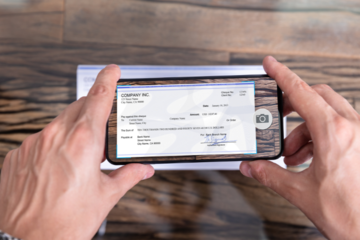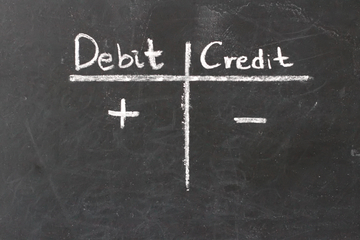Credit scores often seem like the wizard behind the curtain in The Wizard of Oz. They are loud and mysterious, and no one really knows what that three-digit number means. It becomes even more convoluted when people realize that number is on no coherent scale. It’s not 1 to 10, 1 to 100, or even 1 to 1000. Instead, it’s numbers most never expect, and financial literacy matters when increasing one’s credit score.
So what is the highest credit score possible, what does it mean, and what do other credit scores imply? Let’s find out.
Key Takeaways
- Those with the highest credit scores realize substantial benefits, including higher credit limits and lower interest rates.
- An 850 credit score is not easy to achieve, but excellent credit is not out of reach for those responsible with their credit.
- Key to higher scores are on-time payments, low credit usage, and low credit percentages compared to their available credit.
What is the highest credit score you can have?
While most of us know the impacts of lower credit scores and what bad or no credit means to our ability to borrow money, most do not know the perfect credit score. It’s a very rare club that only 1.6% of people make it into.
That perfect credit score is 850, and people with an 800-850 credit score have access to credit at the lowest rates and typically substantially higher limits. They have the ability to walk into a car dealership and qualify at the lowest promotional rates or get a credit card with tremendous perks and rewards.
So we’ve established what perfect credit looks like; what is the range of credit scores?
What Is the Credit Score Range?
FICO scores have a range that wouldn’t make sense to most of us. Instead of 1 to 100 or similar, they range from 300 to 850.
The scores break down to:
- 300 to 579: Poor
- 580 to 669: Fair
- 670 to 739: Good
- 740 to 799: Very good
- 800 to 850: Excellent
The higher the score, the more favorable the credit terms. Those with high scores have greater borrowing power and receive the most favorable rates. In contrast, those in the poor credit score range will have extremely limited options, often needing secured credit cards or loans with co-signers to build their credit.
How Does a Credit Score Work?
A credit score uses past credit behavior to predict future credit management. Lenders use this score to determine the amount of credit they will give you and the rate you will pay for that credit. Essentially, credit amounts and rates are tied to the risk lenders think they are taking on.
To determine your score, credit bureaus will look at a variety of factors that include:
- Your on-time bill-paying history
- The amount of debt you have
- The types and numbers of loan accounts
- The age of your credit accounts
- How much credit you’re using versus what is available
- How many new applications for credit you’ve recently made
- Whether you’ve had a bankruptcy, debt sent to collection, or a foreclosure
Your credit report typically has a look-back period of seven years, although bankruptcy can stay on your report for up to ten years.
Scores might be slow to update, only doing so once the bureaus see the updated information from the credit provider. For instance, you could pay off a credit card, but the credit bureau might not know and reflect that information for a month. Also, the credit bureaus aren’t always in sync or correct; one bureau could reflect a very different score from the other for some time, and occasionally, one bureau might have incorrect information making a yearly check of your credit report very smart.
How To Get a High Credit Score
A high credit score reflects the responsible management of your credit accounts and the calculated risk when taking out new accounts. Credit bureaus look at how you’ve been managing your credit in the past, how much credit you have, the types of accounts you have, the percentages of credit usage, and on-time payments as a way to tell new lenders you’re a good bet. A high credit score says, “Hey! This person is responsible. We want to lend to them.”
What Hurts Your Credit Score?
The most immediate damage one can do to their credit score is bankruptcy or a debt gone to collections. These things will remain on your credit report for some time, and your immediate score will fall, but they are recoverable by starting out with new credit and being responsible. Once you show responsible credit use for some time, companies that extend credit are more likely to take a chance on you. Late payments, too high of credit balances, and high credit use percentages could negatively impact your score. Each of these represents the mismanagement of credit to the credit bureaus and indicates that you’re a high risk for new creditors. Late payments, high revolving credit balances, and low payments indicate to creditors that you might be struggling to manage the credit you already have.
What Helps Your Credit Score?
First and foremost, make your payments on time. On-time payments make a tremendous difference to your score, and every month you pay everything on time only continues to grow those three digits close to the rare 850. Establishing autopay is the best strategy to prevent late payments.
Also critical is the amount of debt you have. Keeping it low and manageable is the key to a higher score. A low amount of debt indicates you stay within your means and only carry an amount you can reasonably manage.
Keep the percentage of revolving credit in use low. The percentage of revolving debt you have versus the total amount available could also raise your score. Credit bureaus will look at your overall ratios and the percentages available on revolving credit accounts. Credit bureaus could consider this responsible credit management if you have $25,000 in available credit and just $5,000 has been used. A common rule of thumb is to keep your revolving credit usage below 30%.
Those are the three most important factors determining your score, but older ages of credit accounts, the number of new applications, and the types and numbers of accounts can also make an impact. The older your credit account average ages become, the lack of new applications, and the better the mix of your accounts, the better off you are.
Bottom Line
Getting to 800 or higher might seem difficult, but even scores in the 700s come with tremendous advantages. It’s always worthwhile to strive for better credit, even if an 800 score seems out of reach. Responsible credit management pays off.
FAQs
- What are the benefits of having a high credit score? Those with high credit scores can open accounts with higher limits and lower interest rates. Often, they qualify for special promotions or credit cards that offer tremendous perks.
- Is it hard to get an 850 credit score? Only 1.6% of the population has an 850 credit score, making it an elite club. Getting to an 850 score often represents years of excellent credit management. The percentage of the population over an 800 credit score is 23% of the population, meaning excellent credit is obtainable to a considerable amount of people.
Sources
- Highest Credit Score: Is It Possible to Get It?
- What Is a Good Credit Score? - Experian
- What are the Different Ranges of Credit Scores? | Equifax
- What is a credit score? | Consumer Financial Protection Bureau
- How long does negative information remain on my credit report? | Consumer Financial Protection Bureau
- Is 800 a Good Credit Score? Here’s What It Means



